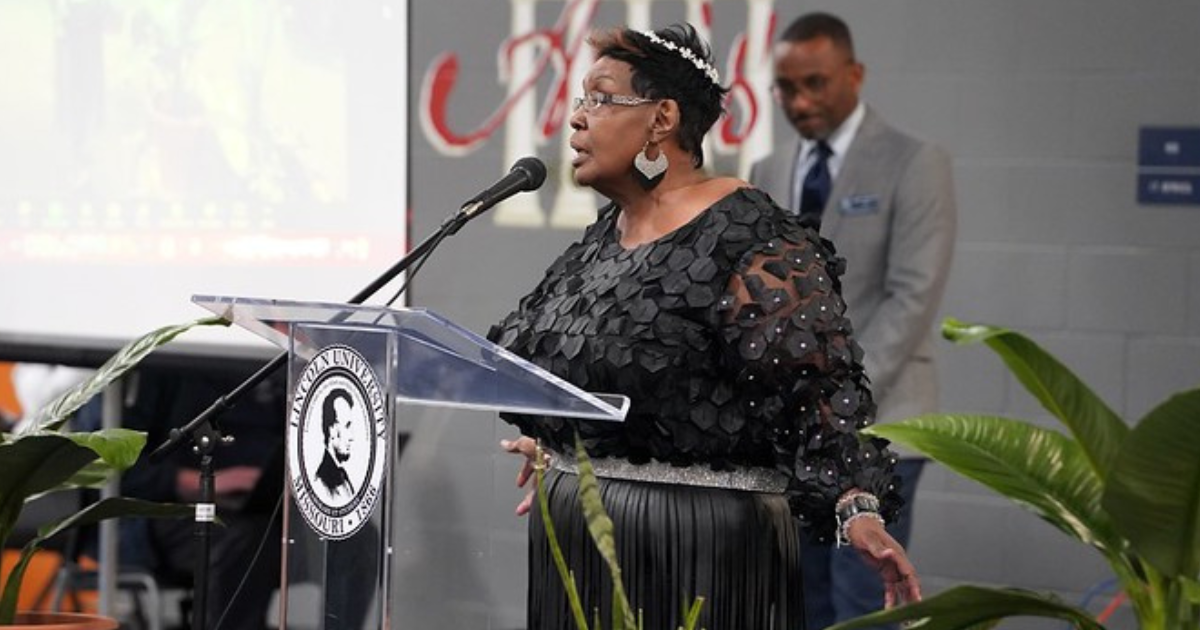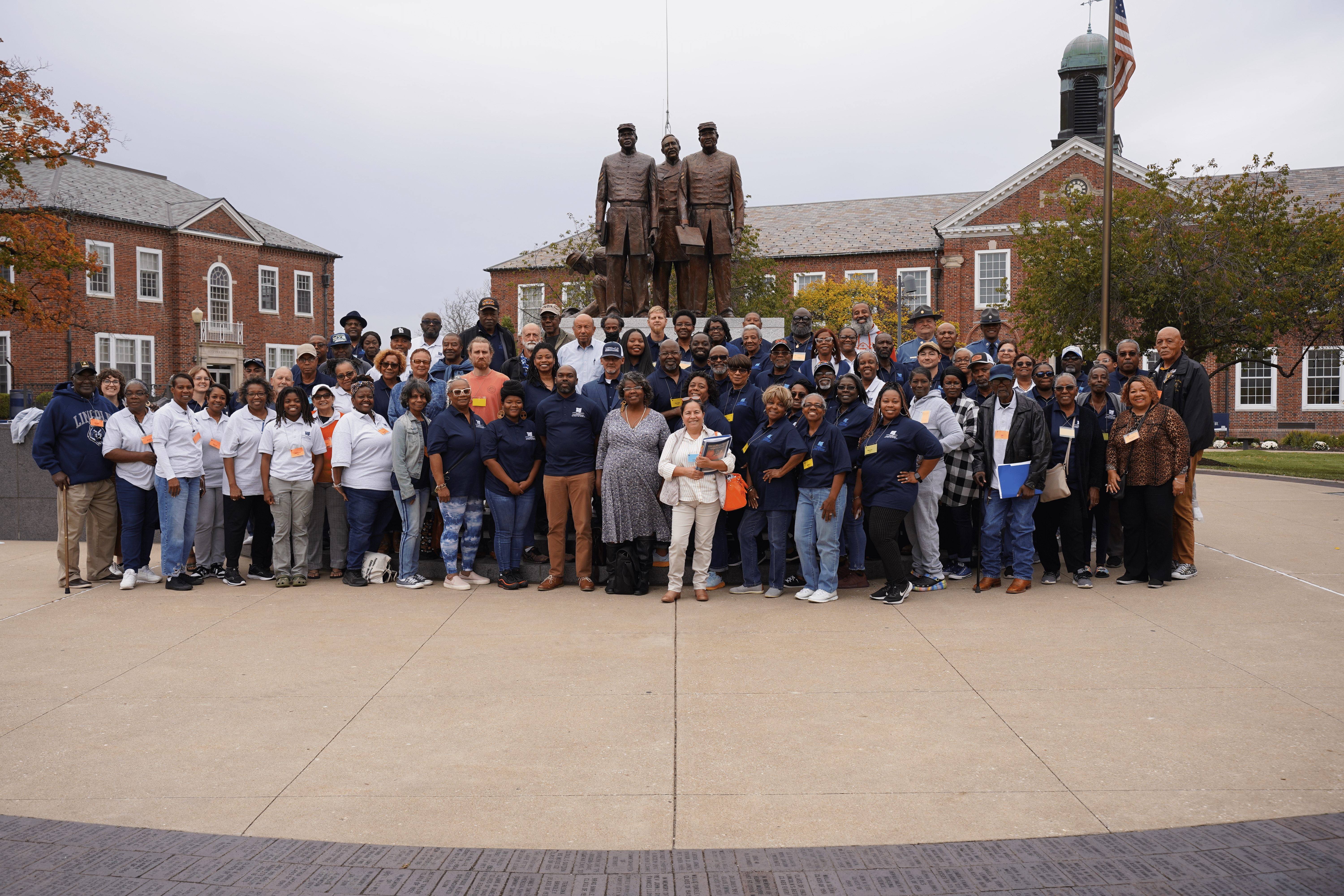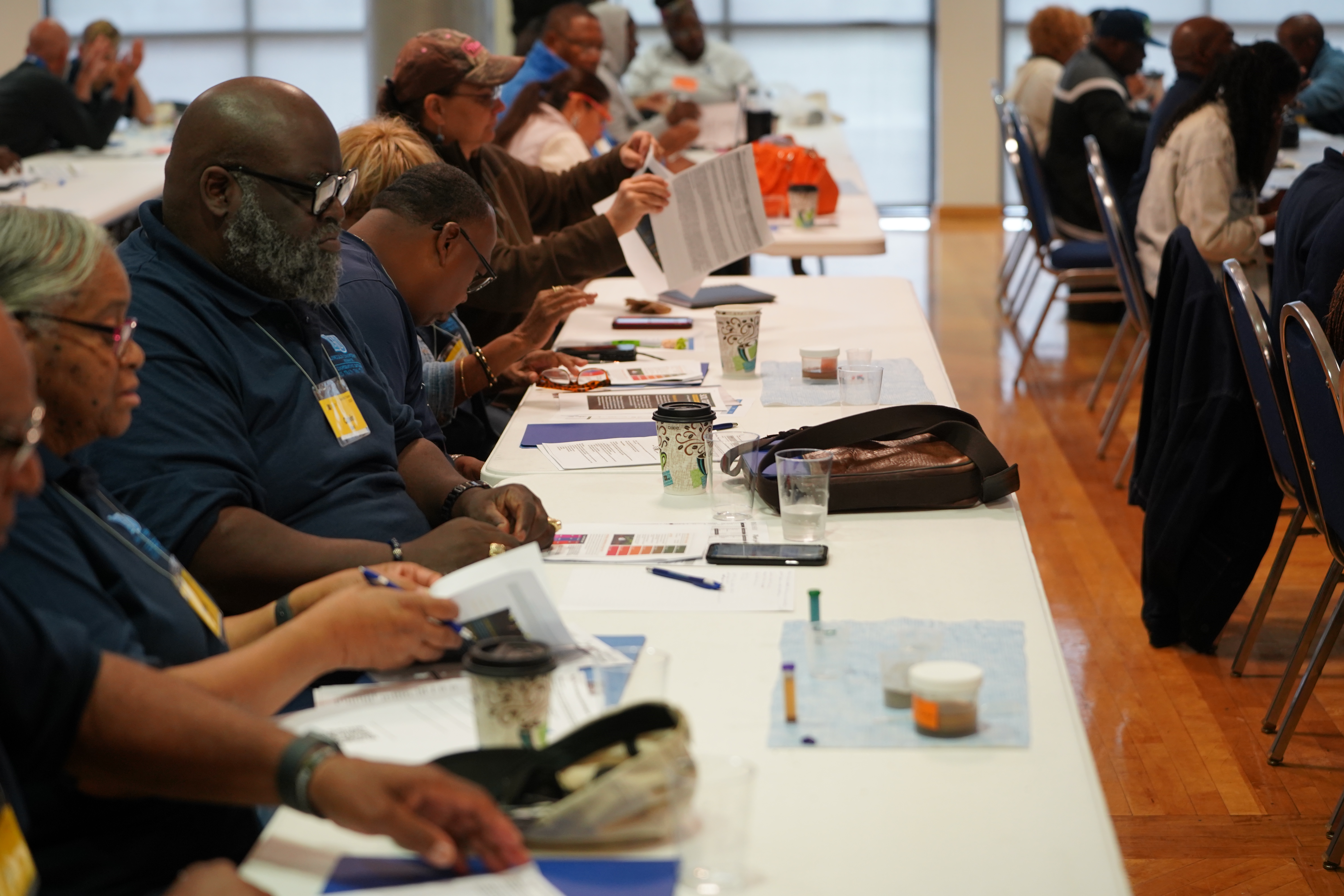Empowering Communities Through Sustainable Gardening
Office of Communications and Marketing
Young Hall
820 Chestnut Street
Jefferson City, MO 65101
 Sheryl “Ms. Sheri” Maxwell, LUCE Charleston Outreach Program Assistant, addresses the audience at the "Train the Trainer" banquet.
Sheryl “Ms. Sheri” Maxwell, LUCE Charleston Outreach Program Assistant, addresses the audience at the "Train the Trainer" banquet.
Lincoln University Cooperative Extension's (LUCE) "Train the Trainer" workshop series, held from October 23 to October 25, aimed to create thriving, sustainable community gardens in underserved areas. Community leaders from various regions gathered to explore gardening, cultivation, and the utilization of produce to combat food insecurity. The importance of this initiative becomes evident against the backdrop of growing concerns about grocery store accessibility in an increasingly uncertain world.
The urgency of self-sufficiency in food production was underscored during “Train the Trainer” by Apostle Russell L. Freeman, the senior pastor of United Community Cathedral in Columbia, Missouri. He emphasized that the nation's current state of affairs raises concerns about the accessibility of grocery stores in the future, making it increasingly vital for communities to leverage their own resources. He stated, "This is a movement, and it is so important that we must use our discipline to ensure the success of this movement."
Over 90 participants engaged in a comprehensive exploration of essential gardening and sustainability practices. The workshops covered a range of critical topics, including combating nuisance wildlife, beekeeping, poultry keeping, nurturing healthy soils, and the art of food preservation. Dr. Clement Akotsen-Mensah, an LU Extension Specialist in Integrated Pest Management, shed light on safe insect control options in agriculture, highlighting the importance of equipment calibration to ensure the appropriate application of pesticides.

Jim Shepard, an ISFOP Outreach Worker for Lincoln University, discussed melon production, organic farming techniques and water management. He emphasized the importance of water conservation through methods like composting and soil improvement. Shepard's message focused not just on growing watermelons. “I'm here to help you learn how to eat, learn how to grow. That's what we do here at Lincoln. We help you learn and give you the information that you need to be successful.”
One of the highlights of the event was the introduction of the LUCE Jessup Wagon 2.0, a mobile classroom that offers education on agricultural best practices to small farmers. Inspired by the work of the renowned African American agricultural scientist and inventor George Washington Carver, this modern-day wagon continues the tradition of sharing agricultural research and education. Mary Bolling Keeter, an ISFOP Outreach Worker, showcased a diverse inventory of farming tools and emerging technologies designed to assist small farmers, emphasizing the importance of bringing modern innovations to communities.
Sarah Eber, LUCE's Human Nutrition and Health Program Coordinator, focused on food safety and canning techniques, encouraging participants to involve children in these activities as a means of passing on essential knowledge.
Gabriel Salinas, an Extension Associate in Agribusiness, provided insights into financing small farm operations and resource allocation, highlighting government-backed loans and grants designed to support small farmers. These financial resources encompass many needs, from startup expenses to purchasing equipment and expanding farm operations.
The event culminated in a banquet on Tuesday evening, featuring delectable dishes made from vegetables and meats grown in the community gardens. Several legislative and agency members attended, demonstrating their support for the initiative. These notable attendees included Deputy State Director Matt Bain—Office of U.S. Senator Josh Hawley, District Director Madison Baker —U.S. Congressman Jason Smith, Senator Jason Bean, Senator Mike Bernskoetter, Representative LakeySha Bosley, Representative Donnie Brown, Representative Jamie Burger, Representative Kim Collins, Former Senator Shalonn “KiKi” Curls, Chief of Staff Daris Davis—State Senator Holly Rehder, Chief of Staff Ryan Gill—State Senator Jason Bean, Representative Allen Gray, Representative Yolonda Fountain Henderson, Representative Rodney Hubbard, Alderwoman City of St. Louis Shameem Hubbard, Senator Angela Mosley, Regional 7 Director Joseph Salvador Palm of the U.S. Department of Health and Human Services, Senator Greg Razer, Senator Steve Roberts Jr., Senator and President Pro Tem of Missouri Senate Caleb Rowden, Representative Delbert Taylor and Senator Barbara Washington.

Trainers participate in a hands-on activity to assess soil health during the workshop.
Sheryl (Ms. Sheri) Maxwell, LUCE Charleston Outreach Program Assistant, played a pivotal role in spearheading this initiative. With the assistance of Amy Bax, Special Assistant to the Dean of the College of Agriculture, Environmental and Human Sciences, they provided travel, lodging, food and the banquet showcasing the produce from community gardens participating in the program.
In her closing remarks, Maxwell emphasized the importance of investing in others. She reminded attendees about the significance of homegrown food and the need to take control of what we consume. She stressed the power of community collaboration and sharing knowledge to address food insecurity as she stated, "Gardening is very important because our communities, without knowing it, are actually going to need it."
For more information about upcoming “Train the Trainer” workshops, please contact Amy Bax at baxa2@lincolnu.edu or 573-681-6190.
